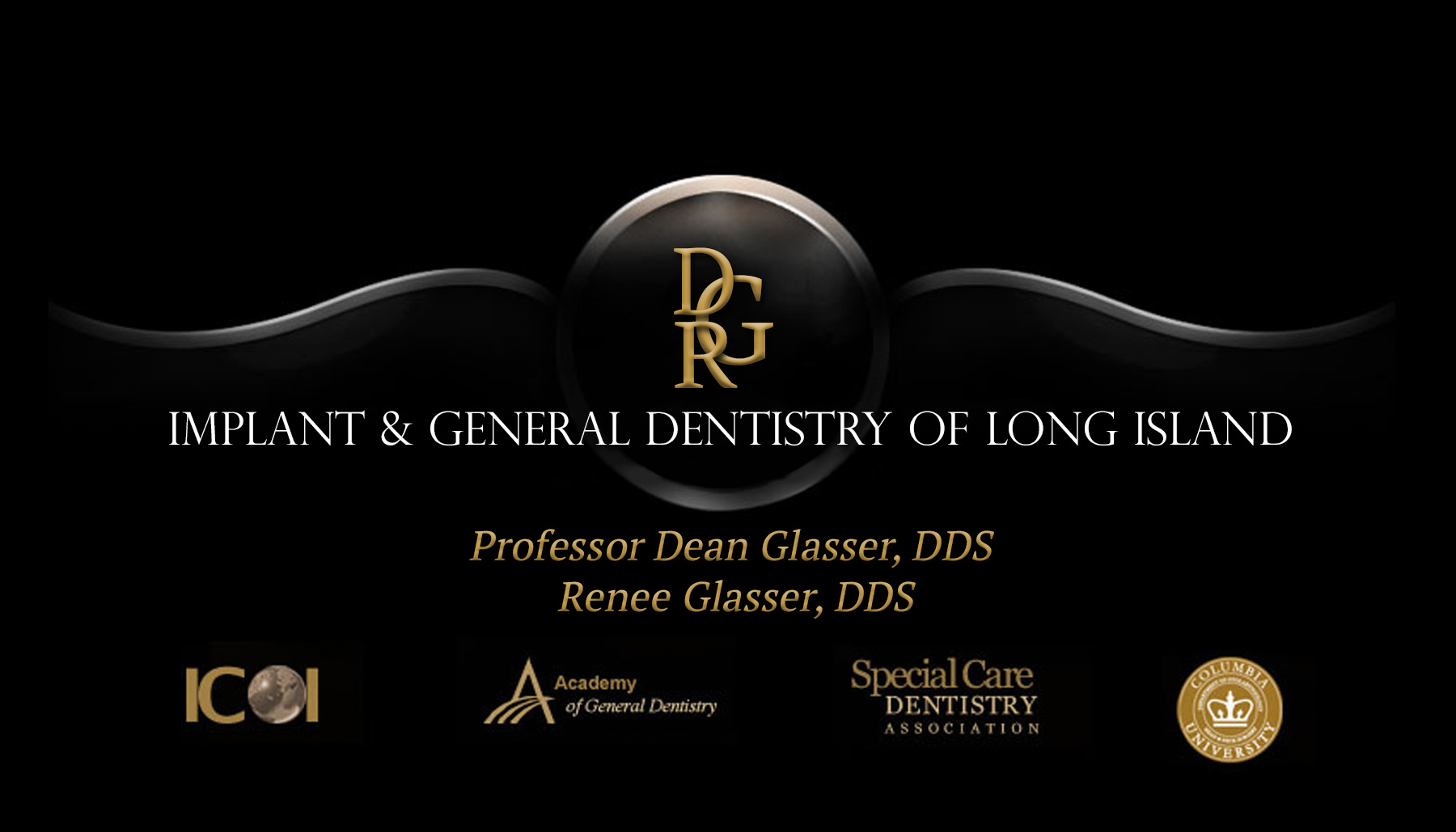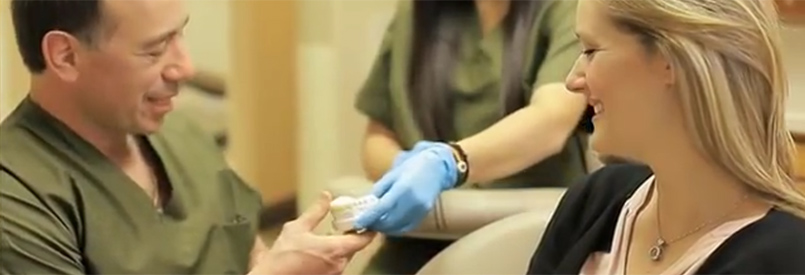Periodontics in Melville, NY
Periodontics is a branch of dentistry that involves conditions and diseases of the supporting structures of the teeth. These supporting structures include the gingival (gums), alveolar bone, cementum and the periodontal ligament, collectively known as the periodontium. Periodontics is derived from the Greek language and literally translates as the study of that which is around the tooth.
The practice of periodontics typically focuses on the diagnosis and treatment of periodontal disease, also commonly known as gum disease. Periodontal disease is actually a broad term that encompasses several different conditions of the gums, including gingivitis and periodontitis. These are common conditions that affect millions of people as a result of smoking, genetics or poor oral hygiene. Fortunately, most cases of periodontal disease are not serious and can be effectively treated through conservative treatment methods. Treatment is especially effective when performed by a highly trained and experienced dentist like Dr. Glasser.
Periodontal Disease
Periodontal disease can develop as a result of many different factors. Some of these factors include:
- Smoking
- Heredity
- Poor hygiene
- Stress
- Medication
- Pregnancy or menopause
- Diabetes
- Obesity
Many cases of periodontal disease do not cause any symptoms until the condition progresses to an advanced stage. It is important to seek medical treatment at the first sign of any symptoms, and to also see Dr. Glasser for routine checkups to detect problems as soon as possible. Common symptoms of periodontal disease include:
- Red, swollen, tender gums
- Bleeding
- Receding gums
- Sores in the mouth
- Loose or separating teeth
- Pus between the teeth and gums
- Bad breath
- Change in bite
Gingivitis
Gingivitis is a mild form of periodontal disease that causes the gums to swell, redden and bleed easily because of inflammation. Gingivitis is the most common type of periodontal disease, and is often caused by a buildup of plaque and bacteria in the teeth because of poor hygiene, or as a side effect to certain drugs, an infection or poor nutrition. Patients do not usually experience pain or discomfort but should seek prompt treatment when symptoms arise because of potential complications of gingivitis.
Periodontitis
Periodontitis often develops as a result of untreated gingivitis. If plaque spreads below the gum line, it can create toxins that may chronically inflame the gums and bone, eventually destroying these structures. Periodontitis can lead to the formation of pockets that are susceptible to frequent infections and can continue to destroy the gums and bone. If left untreated, it can lead to tooth loss, higher blood sugar levels and an increased risk of heart attack and stroke.
Early stages of periodontitis may not cause any symptoms, but as the condition worsens patients may experience swollen gums, new spaces between the teeth and bad breath. There are several different types of periodontitis, some of which include:
Aggressive Periodontitis
This condition occurs most often in healthy patients who have a sudden onset of the disease and experience rapid bone destruction and pocket formation.
Chronic Periodontitis
Chronic periodontitis is the most common form of the disease and causes progressive detachment and bone loss, gradually causing pocket formation and gum recession.
Periodontitis from Systemic Diseases
Periodontitis sometimes develops as a side effect of other conditions such as heart disease, respiratory disease and diabetes. These cases usually begin at a young age.
Necrotizing Periodontal Disease
This condition is an infection caused by necrosis of the supporting structures within the teeth, and commonly affects people with other systemic conditions.
Treatment
Treatment for periodontal disease usually focuses on removing the plaque buildup in the teeth to restore your mouth to its previous healthy state. For early, mild cases of periodontal disease, Dr. Glasser often recommends a deep cleaning, performed as a scaling or root planing. Although these conservative treatments can often help eliminate the main cause of the disease, many patients will require regular treatment from Dr. Glasser in order to help maintain a healthy mouth.
More advanced cases of periodontal disease may require surgical treatment to repair the condition. Periodontal surgery may include pocket reduction, regeneration, crown lengthening or soft tissue grafts to help restore damaged teeth and gums. Patients will also need maintenance care after these procedures in order to ensure that the dangers of periodontal disease will not return.
When patients lose teeth as a result of periodontal disease or other reasons, they may choose dental implants to restore the missing teeth. Dental implants are a major part of periodontics as well, as they are placed and fused to the bone within the gums. Implants act as a natural root to replacement structures and require the same care and prevention against periodontal disease as other teeth.
Many people are affected by periodontal disease, whether mild or severe. If you are experiencing any signs or symptoms of the disease, call Dr. Glasser’s office today so that you can begin any necessary treatment as soon as possible to prevent permanent damage.
Schedule a Consultation Today!

